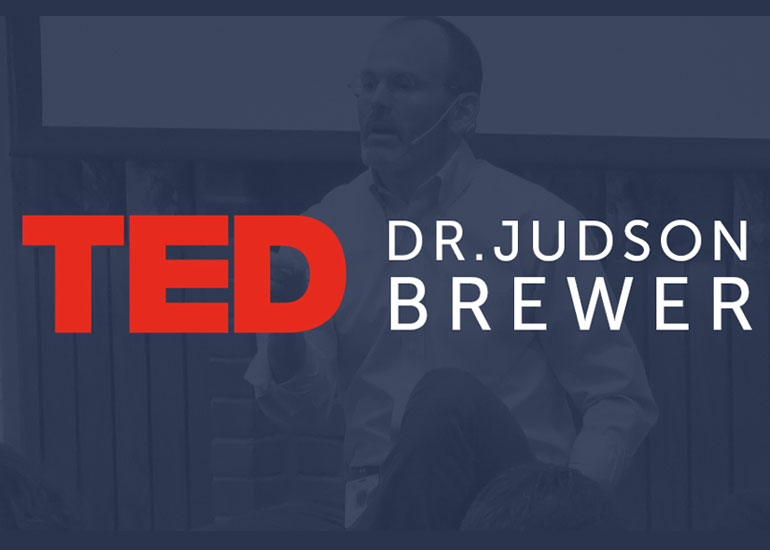It's that time of year again: the season of resolutions.
For many of us, mulling over the options of how to tackle life differently—what new promises we could make or what old habits we could break—can feel a bit unproductively cyclical. Perhaps we're hungry for a fresh start, a behavior shift, or a new daily pattern, but we're also aware that our muscle memory for true habit change isn't all that strong.
Maybe we
start the gym membership or the new way of eating or the drinking less alcohol or the volunteering more often or the [fill in the blank] but after an ambitious launch, whatever it is just doesn't stick.
Enter mindfulness.
Video by
TED.com
According to Dr. Judson Brewer, psychiatrist, author of
The Craving Mind, and leading expert on the relationship between mindfulness and addiction, habits emerge from the reward-based learning process our brain tends to follow. We experience a trigger, engage in a behavior, and reap a reward.
Often, the triggers are emotional.
Perhaps we respond to a trigger of feeling sad by engaging in a behavior (devouring a pint of ice cream, for instance) that our brain
knows will lead to a sense of pleasure (a sugar high). When that happens, we are doing two things: strengthening the reward-based learning process
and developing a habit—in this case one that may have ill effects on our health.
What would it look like to insert a pause between the emotional trigger and the habit we tend to lean on once triggered?
Dr. Brewer doesn't suggest doing that in a way that prompts self-judgment, nor does he believe that
forcing ourselves to "do the right thing" tends to work, but he does believe that allowing curiosity into the process can go a long way toward noticing what we're up to and enacting lasting change.
We love this approach.
Before setting your resolutions for 2019, set aside 10 minutes for this brilliant
TED Talk with more than 11 million views—and get curious about your patterns.
Written by Kate Green Tripp.
